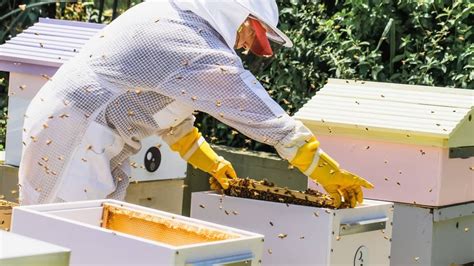How To Split A Hive Without Finding The Queen
Ronan Farrow
Mar 26, 2025 · 3 min read

Table of Contents
How to Split a Hive Without Finding the Queen: A Beekeeper's Guide
Splitting a hive is a crucial beekeeping practice for colony propagation and preventing swarming. Traditionally, this involves locating the queen, a time-consuming and sometimes frustrating process. However, there are several effective methods to split a hive without finding the queen. These methods leverage the bees' natural instincts and colony dynamics to create a new, thriving hive.
Understanding the "Queenless" Split Methods
These techniques rely on the bees' ability to raise a new queen from existing larvae. The absence of a laying queen triggers the colony to begin the queen-rearing process. This means you don't need to physically locate the queen to successfully split your hive.
The Walk Away Split (WAS)
This is perhaps the simplest method. It involves:
- Dividing the resources: Take roughly half of the brood frames (containing eggs, larvae, and pupae), along with a proportionate amount of honey and pollen frames, from the original hive.
- Establishing the new hive: Place these frames in a new hive body, in the same apiary.
- Leaving the bees to it: The bees will naturally sort themselves out. Both hives will likely contain a mix of nurse bees and foragers. The original hive will have a queen, and the new hive, lacking a queen, will rear one from existing larvae.
Important Considerations:
- Timing: A WAS is best performed during a period of active brood production, usually in spring or early summer.
- Strength: The original hive should be strong enough to sustain the split.
- Feeding: You might need to provide supplemental feeding to the new split, especially if the honey stores were limited.
The Splitting with a Frame of Eggs and Young Larvae
This method guarantees the presence of potential queen cells in the new split.
- Selecting the frames: Choose a frame with eggs and young larvae (less than 3 days old). This is crucial for successful queen rearing.
- Populating the new hive: This frame, along with several frames of brood, honey, and pollen from the original hive, should be transferred into the new hive box.
- Nurse bees: Ensure you have plenty of nurse bees (younger bees responsible for brood care) in the new split for proper queen rearing and brood care.
Key Advantage: This offers a higher chance of success as it actively promotes queen rearing by providing the necessary resources in the new colony.
Ensuring Success: Best Practices for Queenless Splits
Regardless of the method you choose, follow these best practices for increased success:
- Location: Keep the new hive in close proximity to the original hive initially, allowing the foragers to easily return. Gradually, increase the distance over time.
- Marking: Mark the new hive clearly to avoid confusion.
- Monitoring: Regularly monitor both hives for queen acceptance and successful queen rearing in the new split. Look for queen cells and the presence of eggs laid by a new queen.
- Comb: Ensure the frames you’re using are suitable for brood rearing, clean, and disease-free.
Conclusion
Splitting a hive without finding the queen is a viable and efficient technique for beekeepers of all experience levels. By understanding the underlying principles and following the steps carefully, you can successfully propagate your colonies and maintain a healthy apiary. Remember to adapt these techniques to your specific apiary conditions and always prioritize the health and well-being of your bees.
Featured Posts
Also read the following articles
| Article Title | Date |
|---|---|
| How To Write A Book Endorsement | Mar 26, 2025 |
| How To Sell A Suppressor | Mar 26, 2025 |
| How To Store Sketchbooks | Mar 26, 2025 |
| How To Take Weight Out Of Hair | Mar 26, 2025 |
| How To Use Honey Granules | Mar 26, 2025 |
Latest Posts
Thank you for visiting our website which covers about How To Split A Hive Without Finding The Queen . We hope the information provided has been useful to you. Feel free to contact us if you have any questions or need further assistance. See you next time and don't miss to bookmark.
